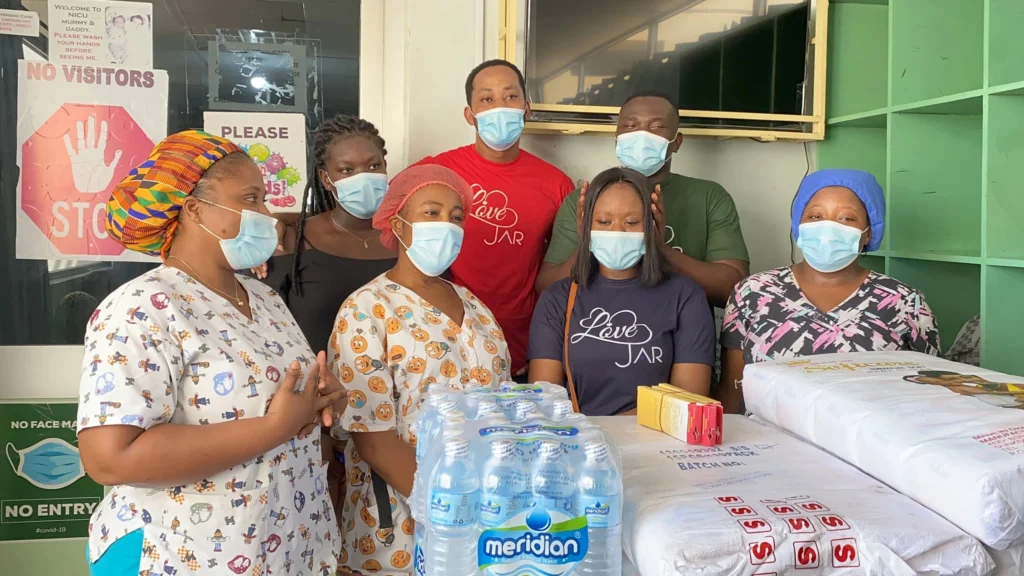Foundational Care Principles
Explore Our Guiding Principles for Meaningful Care
This section delves into the core principles and biblical values that shape LoveJar’s mission, emphasizing love, spiritual support, and community in healthcare ministry.

Explore Transformative Care Principles
Principle One
Love as the core of all healing.
Principle Two
Building trust.
Principle Three
Community integration enables total patient care.
Foundational Care Principles at Hospitals and Healthcare: THE Love Jar Foundation PERSPECTIVE.
Healthcare in Ghana faces many challenges—limited resources, long distances to clinics, and the need for trust between patients and providers. Love Jar Foundation, a Ghanaian Christian NGO, believes that strong, practical care starts with clear principles rooted in faith and service. These foundational care principles guide hospitals and health centers to provide treatment that heals bodies, lifts spirits, and honors God.
1. Love as the Heart of Care
At Love Jar Foundation, we believe love is the first principle of healthcare. This means treating every patient with kindness and respect, no matter who they are—rich or poor, young or old. In a busy hospital, a nurse might smile and listen to a worried mother, or a doctor might take an extra minute to explain treatment in simple words. Love shows up in small, practical acts that make people feel seen and valued, reflecting Jesus’ command to love our neighbors.
2. Dignity for Every Person
Every human is made in God’s image, so every patient deserves dignity. This principle means giving care that respects people’s culture, beliefs, and needs. For example, a health worker might speak Twi or Ewe to comfort someone, or cover a patient properly during an exam. At Love Jar Foundation, we teach hospitals to see patients as whole people—not just their sickness—because dignity builds trust and healing.
3. Service with Humility
Healthcare is a calling to serve, not to show off. Love Jar Foundation encourages workers to act with humility, putting patients first. A cleaner sweeping a ward or a doctor working late to help a sick child—they’re all serving God’s purpose. Practically, this might mean training staff to be patient even when they’re tired, or thanking them for their hard work. Humble service keeps healthcare strong and compassionate.
4. Holistic Healing: Body, Mind, and Spirit
Sickness isn’t just physical—it affects emotions and faith too. Love Jar Foundation believes care should touch all parts of a person. A hospital might offer prayers alongside medicine, or let a pastor visit patients for encouragement. For instance, a woman recovering from surgery could get pain relief, a kind word from a nurse, and a prayer for strength. This full-circle care mirrors Christ’s healing in the Bible.
5. Fairness in Access to Care
In Ghana, some people miss out on healthcare because they live far away or can’t pay. Love Jar Foundation stands for fairness—everyone should get a chance at good care. Practically, this could mean setting up mobile clinics in villages, or helping patients with transport to a hospital. It’s about making sure the poorest farmer gets the same attention as someone from the city, showing God’s justice through action.
6. Excellence in Every Task
God calls us to do our best, so healthcare should be excellent even with limited tools. Love Jar Foundation pushes for workers to be well-trained and careful—whether it’s a nurse giving an injection or a clerk keeping records straight. Excellence doesn’t need fancy machines; it’s about doing small things right, like washing hands to stop infections or double-checking a prescription.
7. Community as Family
In Ghana, community is everything. Love Jar Foundation sees healthcare as a family effort—patients, workers, and neighbors all play a part. A hospital might invite local leaders to share health tips, or train volunteers to check on sick people at home. This builds a network of care, like the early Christians who looked out for each other. It’s practical and keeps everyone connected.
8. Faith in Action
Finally, faith drives everything at Love Jar Foundation. We believe God works through healthcare to bring hope. This doesn’t mean just praying (though prayer matters)—it’s about acting boldly to help people. A clinic might stay open late during a malaria outbreak, or staff might walk miles to reach a sick child. Faith in action turns belief into results, showing God’s love in ways people can feel.
Additional Considerations
Beyond these principles, adaptability to different settings is an important aspect. Ministers must adjust their care practices according to the environment, such as hospital protocols versus community visits, ensuring relevance and effectiveness. For example, in hospitals, they may need to work within clinical schedules, while in society, they might provide home-based support. Additionally, evidence-informed practice is recommended, basing care on research like the Spiritual Assessment and Intervention Model (Spiritual Aim), which provides structured approaches to spiritual care.
Comparative Analysis of Settings
The following table compares the application of these principles in hospitals versus community settings for the sick in society:
| Principle | Hospital Setting | Community Setting (Sick in Society) |
|---|---|---|
| Integration with Physical Care | Collaborate with medical teams, align with treatment plans | Coordinate with community health services, support at home |
| Patient-Centered Approach | Tailor to acute needs, focus on hospital stay | Address long-term needs, build ongoing relationships |
| Cultural Competence | Respect diverse beliefs in multi-faith environments | Adapt to local cultural norms, engage with community |
| Spiritual Assessment | Conduct upon admission, focus on immediate needs | Regular assessments, focus on chronic conditions |
| Ethical Conduct | Uphold hospital policies, ensure privacy in clinical areas | Maintain confidentiality in home visits, respect autonomy |
| Self-Care and Resilience | Manage high-stress hospital environment, prevent burnout | Balance community demands, sustain long-term engagement |
| Continuing Education | Access hospital training, stay updated on clinical care | Participate in community workshops, learn local needs |
